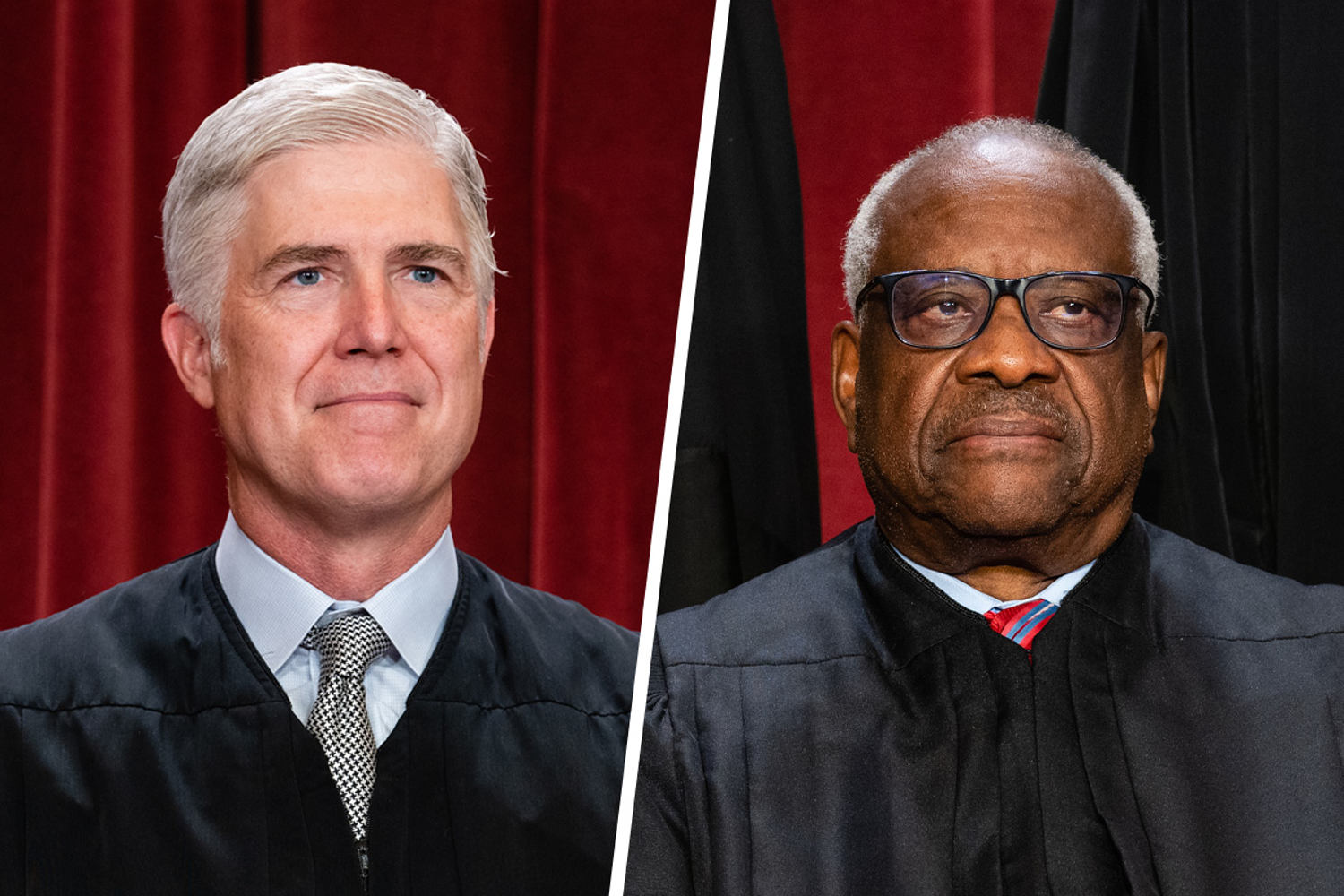
It’s rare for the Supreme Court to side with death row prisoners. But it’s not unusual for Justices Clarence Thomas and Neil Gorsuch to vote against them, so their dissent is unsurprising in Tuesday’s ruling in favor of a woman who was convicted in her estranged husband’s murder. And litigation in the case isn’t over yet.
Brenda Andrew argued that her Oklahoma trial in the 2001 killing of Rob Andrew featured irrelevant evidence about her from the state regarding her “sexual history, gender presentation, demeanor, and motherhood.” In her petition to the justices, Andrew’s lawyers argued:
The State elicited testimony about Ms. Andrew’s “short skirt, low-cut tops, just sexy outfits,” “very tight” dresses, “a leather outfit” that was not “appropriate,” and otherwise “improper clothing.” The State’s sex-based argument peaked when the prosecution called Ms. Andrew a “slut puppy” and displayed her thong underwear during its guilt-phase closing argument.
And how does all of this translate to a legal argument? That’s through the Constitution’s due process protections. Andrew’s lawyers argued that the above and other evidence was so prejudicial that it violated her rights. But a federal appeals court rejected the claim because it thought that Supreme Court precedent hadn’t established that wrongly admitting prejudicial evidence could violate due process.
“That was wrong,” the Supreme Court wrote in an unsigned “per curiam” opinion for the court on Tuesday.
“By the time of Andrew’s trial, this Court had made clear that when ‘evidence is introduced that is so unduly prejudicial that it renders the trial fundamentally unfair, the Due Process Clause of the Fourteenth Amendment provides a mechanism for relief,’” the court wrote, quoting its 1991 ruling in Payne v. Tennessee.
The high court sent the case back for further proceedings. Those will consist of the appeals court examining “whether a fairminded jurist reviewing this record could disagree with Andrew that the trial court’s mistaken admission of irrelevant evidence was so ‘unduly prejudicial’ as to render her trial ‘fundamentally unfair,’” the court said.
Justice Samuel Alito, who like Thomas and Gorsuch has voted against death row prisoners in divided decisions, issued a brief concurrence Tuesday. He agreed that Supreme Court precedent can support due process violations when too much irrelevant and prejudicial evidence comes in at trial. But he added that he was expressing “no view on whether that very high standard is met here.”
Thomas, meanwhile, wrote a lengthy dissent, joined by Gorsuch, in which he accused the majority of departing from “settled law.” He said the evidence against the defendant was overwhelming and that “[s]ex and marriage were unavoidable issues at Andrew’s trial.” He cast doubt on her prospects on further review in the lower court, writing that if the appeals court follows the law, “it still will find that the state court reasonably applied the principle the Court [majority] has identified, no matter what it thinks of the specific facts of Andrew’s trial.” The case could come back to the justices again.
In its ruling, the high court recounted that Andrew told police that she had separated from Rob Andrew and was dating James Pavatt, who later confessed to the shooting. Prosecutors charged them both, and Pavatt was convicted in a separate trial and sentenced to death.
In a court filing to the justices ahead of the ruling, Oklahoma officials recounted that at her trial, Andrew had blamed Pavatt for the killing and tried to show she was a good mother who wouldn’t kill the father of her children. The officials said that led prosecutors to counter with evidence “indicating Andrew’s visceral hatred of Robert and her ability to get men (including Pavatt) to do her bidding.” They said this evidence was “both relevant and but a drop in the ocean of the State’s evidence.”
Subscribe to the Deadline: Legal Newsletter for expert analysis on the top legal stories of the week, including updates from the Supreme Court and developments in Donald Trump’s legal cases.
